
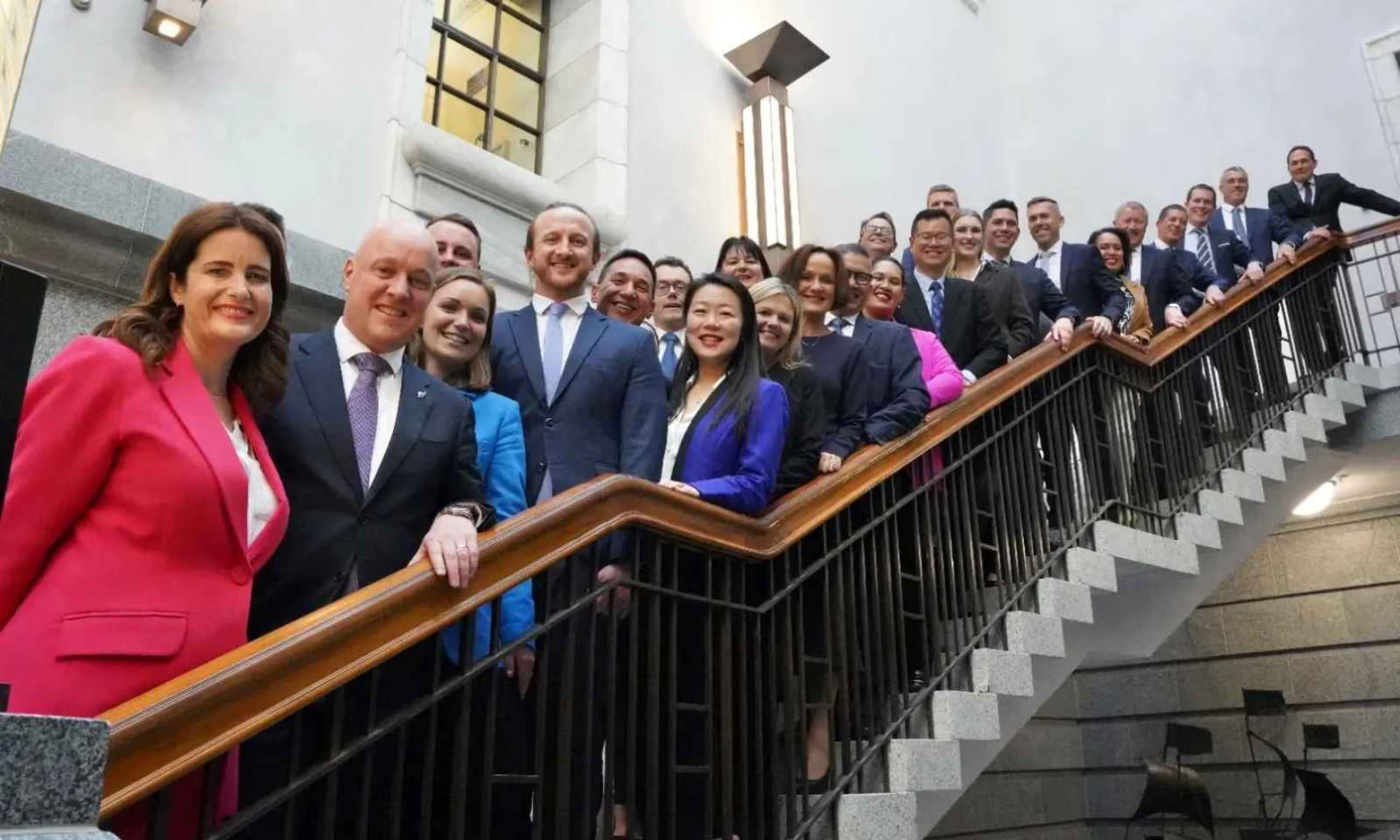
National Party leader Christopher Luxon, Nicola Willis and National's new potential MPs.
Photo/ Facebook/ National Party
Election 2023: Will this government design a future with us in mind?
Taualofa Totua shares her reflections following PMN's Post Election Special hosted on 531pi.




Heading off on a roadie? Here’s how to keep your car and whānau safe





Heading off on a roadie? Here’s how to keep your car and whānau safe

Reschedules, no-shows and quick thinking broadcasters.
This is how I would describe the first hour of my first ever live post-election coverage as a young, Pacific journalist.
Watch the full Post-Election Special below:
In previous years, any election analysis was done from the couch of my home, dominated by my grandpa’s voice as we flicked between channel one and channel three on election nights.
I remember not really understanding the extent of all the numbers. Words like electorates and coalition were spat out at me. The party colours and the visuals, especially the seat graphs were the most soothing. At least I knew what my Government looked like. Even still, politics and its players seemed so far away from daily life and the daily struggles my loved ones endured.
For the 2023 election, I was able to explain the basics confidently, with a better grasp on the mechanics of MMP and niggly cogs in the system like: special votes and an overhang.
On Sunday, everything that I thought I understood about the election campaign, the parties and election night itself, was overshadowed by the permanence of live radio. The two-hour live show felt like a test on my agility as a reporter. Whatever was said, would be recorded audio and video and out there in the world forever. Much like the nature of social media.
Instead of my grandpa’s voice, I had a team of Pacific broadcasters and journalists to learn from, with 531pi's Pacific Days' host Brian Sagala at the helm. We went over the layout of the show twice together beforehand, with times and interview slots ironed out down to the second.
I was prepared to welcome any and all initial reactions from all of our guests and find fragments of the current state of New Zealand in their behaviour and responses.
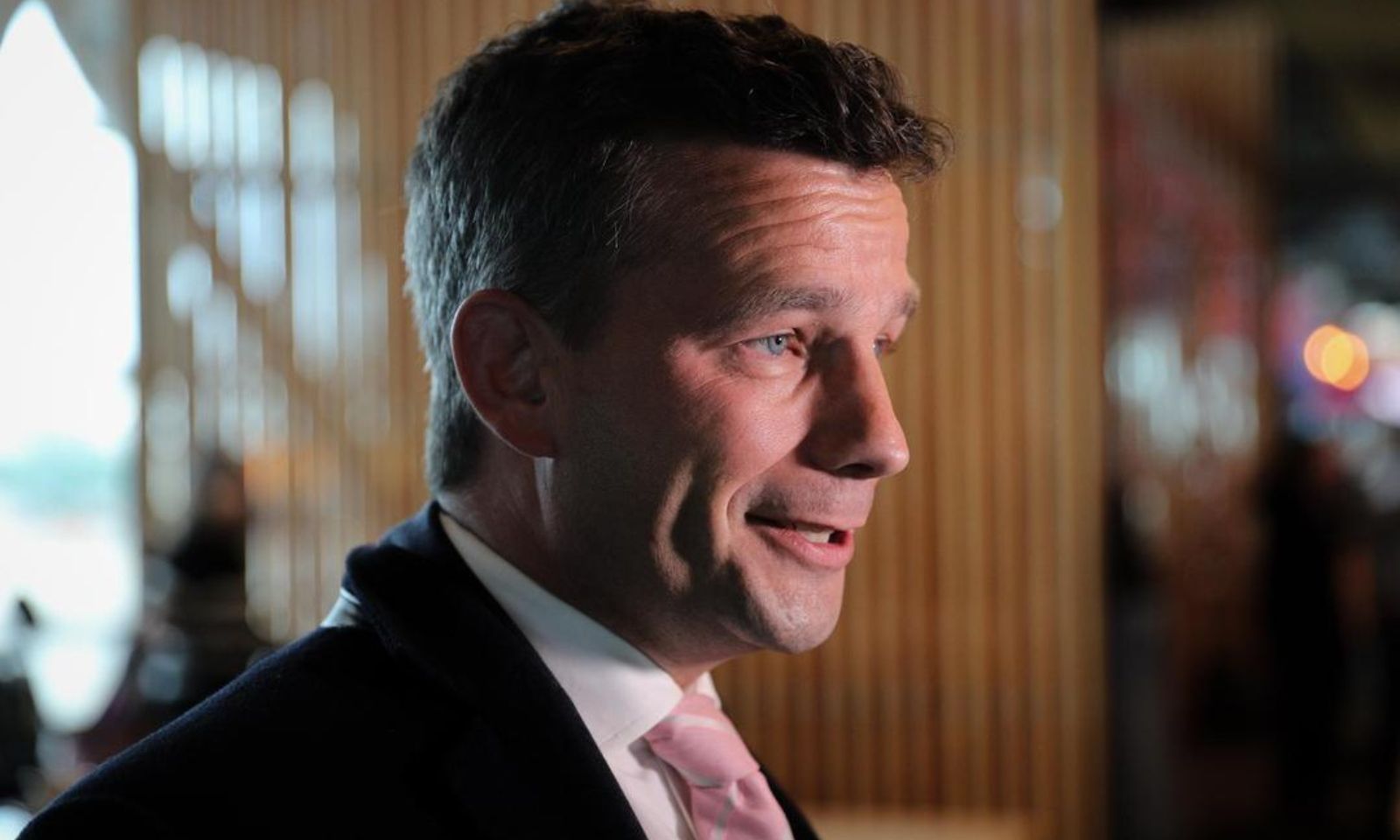
David Seymour at Wellington Airport. Photo/ RNZ / Angus Dreaver
Acting up?
At exactly 12pm just as the show started I received the first change via text - ACT Party Leader David Seymour would be called later than scheduled. The time to call him arrived and passed. With just under an hour left to go of the show, we were then informed that he was stuck in a board meeting that went on and on and on but would be available at 2pm, when the show would be over.
Fair enough, I thought. Now that the campaign period was over, strategies would need to be discussed and gameplans drawn between ACT and their stakeholders.
I thought about the questions that still needed to be asked. How can we ensure Pacific people will be looked after, when the ACT party and Seymour have been vocal about public services “dividing people by race” and the party’s extremely harmful reaction to the Ministry for Pacific People’s overspending?
Data from the Election Commission broke down donations political parties received in 2022 and ACT New Zealand received $2,081,331.19. I wondered if perhaps ACT was meeting with their generous donors to thank them for this year.
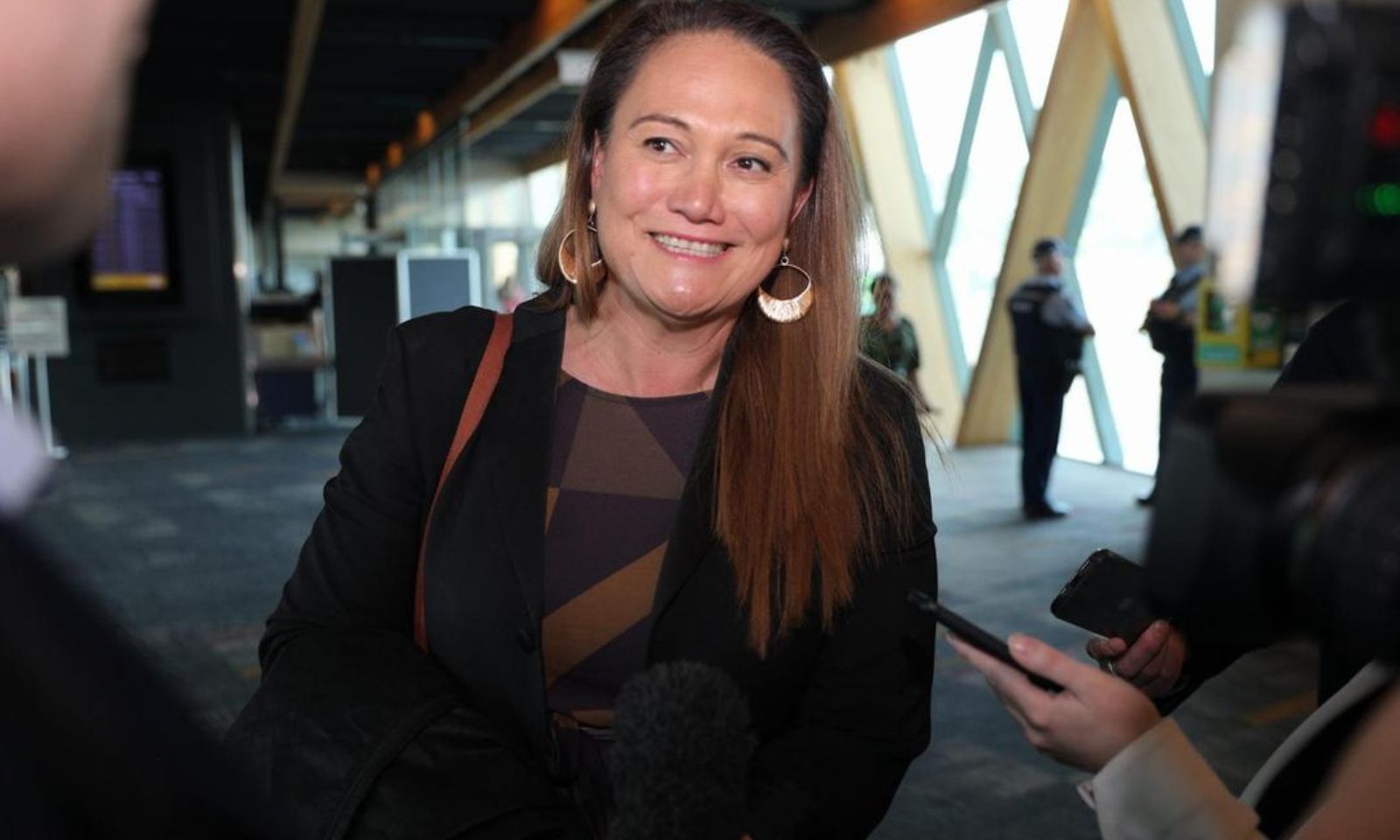
Carmel Sepuloni arriving at Wellington Airport after the election. Photo/ RNZ / Angus Dreaver
'Gracious in defeat'
Current deputy prime minister Carmel Sepuloni spoke on behalf of the Labour Party. She arrived about 5 minutes after she was scheduled to join the show but talked for just over 15 minutes. While she spoke, I was streaming the show’s first hour via my phone, emailing David Seymour’s team and crafting a text for New Zealand First rep, Anne Degia-Pala.
The Kelston MP highlighted low voter turnout as a key reflection.
“It was always going to be my number one concern that our Pacific people were not part of the decision-making on October 14. We’ve been through some difficult times and I think that there were a range of factors that influenced that turnout.”
I wondered if she had just cleverly deflected her party’s terrible loss by highlighting voter turnout. It seemed easier for her to highlight the low turnout than to identify the areas Labour’s six years in power began to fall apart.
South Auckland electorates such as Manurewa and Mangere on election day showed “nothing but love” for Labour, but despite her gratitude, Sepuloni did look regretful. Her tone, her expressions: all wore a grim loss and I imagined she would have been thinking about the effects of National’s blue wave on her Pacific caucus. She would have to say goodbye to colleagues and friends after making history as the largest ever Pacific caucus - after the 2020 elections.
“This is a loss for our Pacific community, we’ve had the best representation for Pacific peoples in our government. These are amazing people who have strived to serve our Pacific communities. We’re not just colleagues, we care about each other. We’re like family - we know each other’s partners and care for each other’s children.”
Like many in her team, Sepuloni says she’ll be looking at the numbers of the special votes.
“Apparently - with our scrutineers that were out and about - there were a large number of special votes. That was holding out some of the voting to a certain extent.”
I thought one of the memorable moments in her talanoa was when Sepuloni went on defence mode after Brian Sagala asked “where did it all go wrong?”
“We’ve had more challenges in the last years than many could have anticipated and many of them are certainly global. I think of course as a political party we need to reflect but we also do need to acknowledge that we’ve been through unprecedented times and certainly that played a big part in what we’ve seen.”
Her tone of voice shifted and again I wondered if she truly understood where communities were at. I wanted to challenge her with: Pacific communities have gone through those unprecedented times right alongside you.
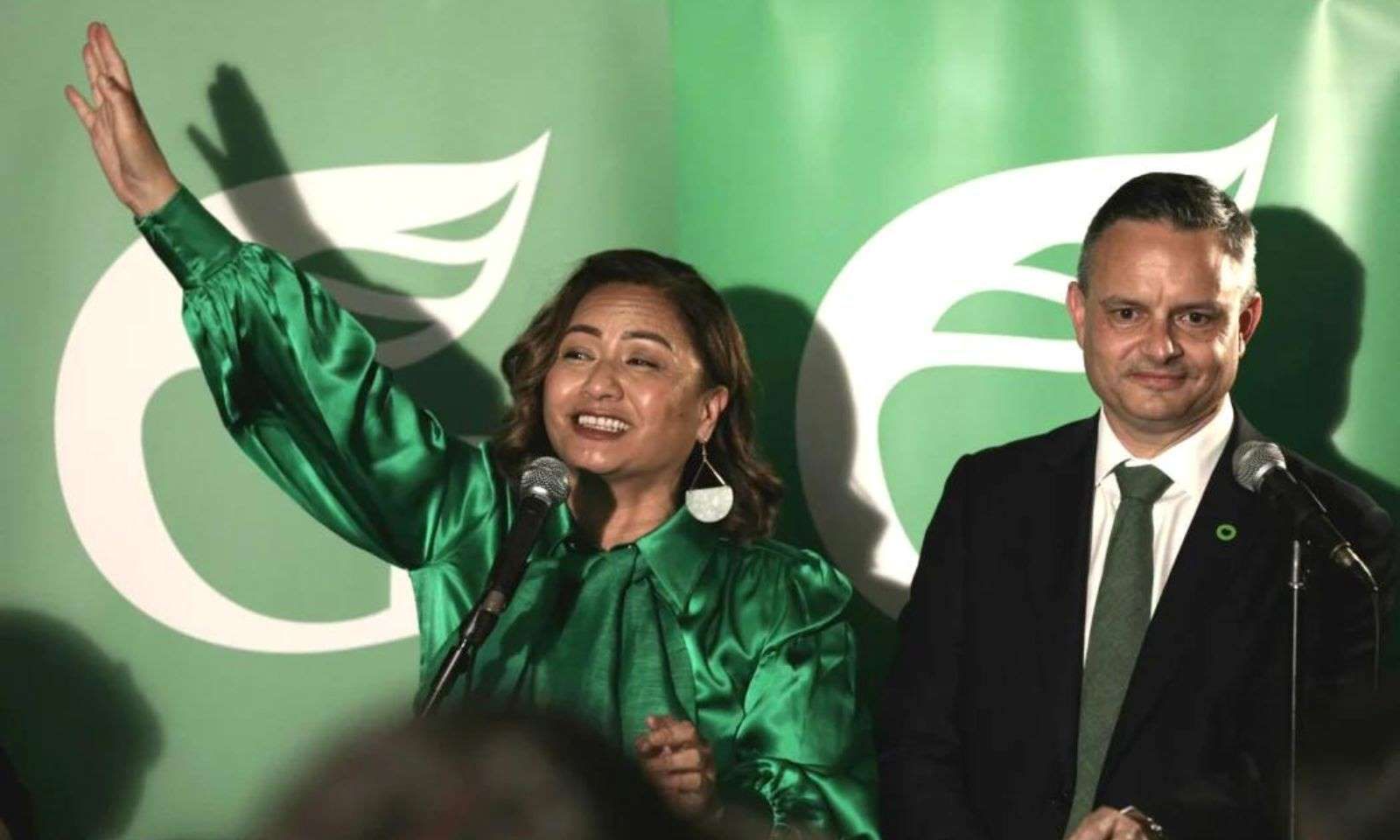
Green Party co-leaders Marama Davidson and James Shaw. Photo/ Supplied/ RNZ
The Greens are making history
Newcomer Fa’anana Efeso Collins was the only in-studio candidate panellist for the special. He arrived at around 12.35pm, (right on time) wearing a green aloha shirt, an ie faitaga and a huge grin. He brought a surge of energy into the studio, despite not winning his electorate. But as one of the Green's 11 list seats he will be in the Parliament, making up the party’s largest-ever caucus.
He described his success as a childhood dream come true.
“Today being elected into parliament on the provisional results is really exciting for our family. We’ve always been about wanting to be a strong voice for our people. That’s what I think’s been needed. I’m glad I’m with a party that has fully embraced me and accepted me.”
He called himself a little bit weird, a little odd but still strong in advocacy. He also said life would be boring without outspoken people like himself.
“Perhaps that’s what will sum up our approach to parliament during this term. We’re here to keep people to account. Yes we want to propose new ideas, we want to prose advocacy and a way forward for our country. But we’ve also got to hold people to account.”
His most admirable contribution to the talanoa was describing his why; it was key for him to do all that he could to be part of the decision making process that will facilitate the conditions for his daughters and children to thrive in life.
“This is beyond us. I’m thinking of the legacy and heritage we leave for them. The facts remain. I’ve got brown daughters – if you’re brown and female the research is really clear. You earn the least in comparison to a white male. Our job is to navigate our kids through those challenges. There is systemic racism in our society and our girls are not going to do well unless we’re there to walk with them and change the system.”
During the special, I talked about politicians generally needing to do better to seek out young people. They need to meet young people where they are at to engage them. Fa’anana was eager to respond - his “pick me” energy was apparent - and he made some important points.
“What [the voting statistics] tell us is that when it’s a lower voter turnout it suits National better,” Fa’anana said.
“When it’s a higher voter turnout, it suits the left better. We just have to accept, if we don’t participate, we are allowing someone else to make a decision for me. The more you say 'nah stuff it', the more the world will just keep going and manufacturing the system we’ve got at the moment.
“How many young people’s meetings I went to when I was running for mayor. When you look at the date, no one voted. I busted my guts to get out there. It’s just picking up a pen. Some of us are really busting our guts to see young people.”
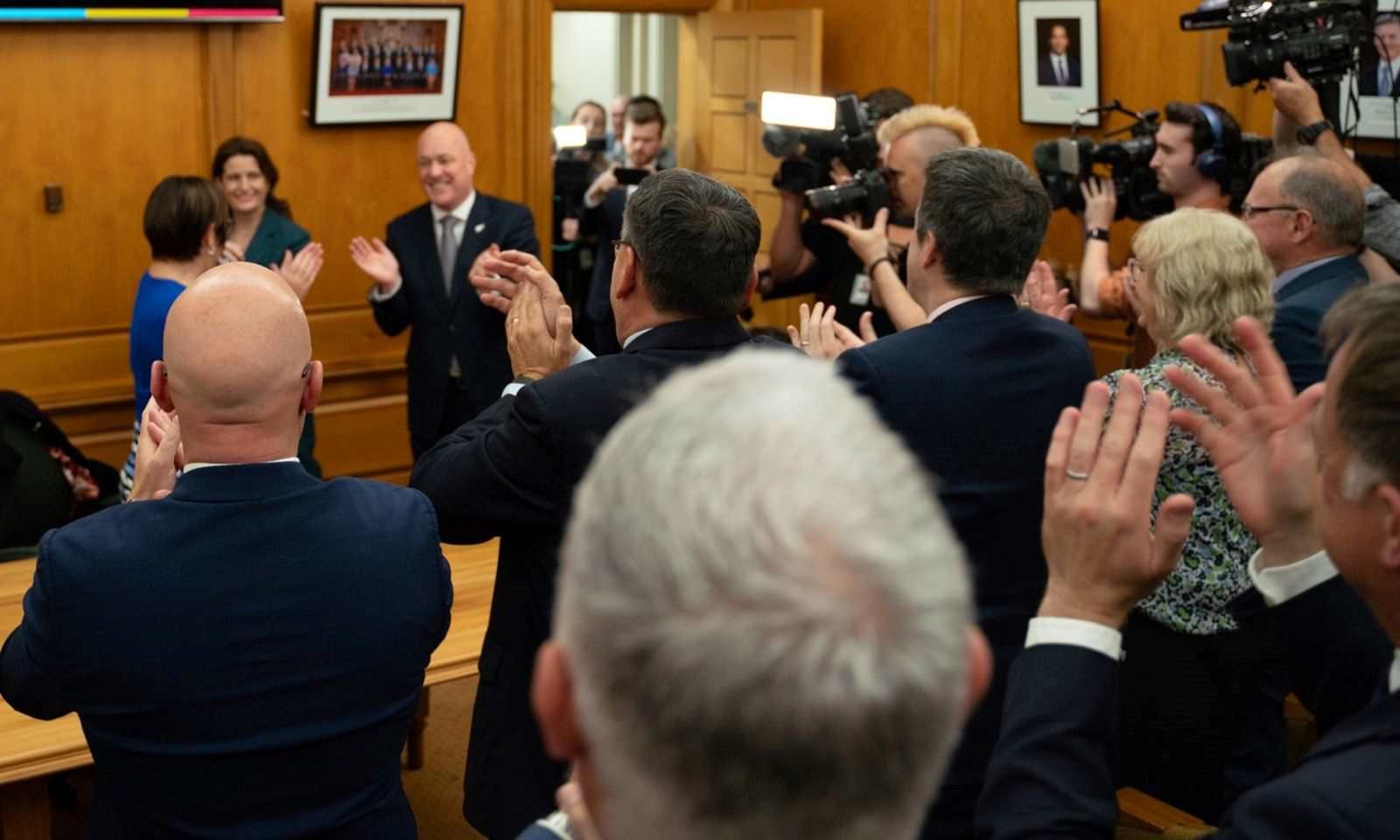
National MPs congratulate Christopher Luxon on the party's election result. Photo/ Facebook/ National Party
To the winners, go the spoils
National’s Te Atatū candidate Angee Nicholas sits pretty low on the party’s ranking list, but within the top 40, and wasn’t booked in for any immediate party meetings the day after election night. Except for an early morning interview with Tagata Pasifika and a zoom call for our election special, the 29-year-old Cook Island-born hopeful was thrilled to see the turn towards National in her electorate. On election night, she was 30 votes ahead of senior Labour Party incumbent Phil Tyfword.
“Pure excitement I think, it’s been a long time since this has happened here in Te Atatū.
“Most people have tried to take a little bit of a break, a breather. It’s been a really good and hard campaign.”
I questioned her about Pacific representation in the new government.
How did she feel? Was she hopeful? With the numbers looking unlikely for National list-only candidate Fonoti Agnes Loheni, it may just be riding on Nicholas’ win.
“We knew that it was going to be a tight race. Sitting in my position in a seat that’s been held by such a long time by Labour MP’s, I’m really really aware of the challenge. We’ve done the work, and I’d love to see Fonoti Agnes in parliament. But it really is in the hands of the public, so we prepare for both results - whether we get in or not.”
And if she does enter parliament, how would she deal with having a coalition partner that wants to get rid of the Ministry for Pacific Peoples?
“We’ve been really clear as a party and our leader Chris Luxon has said that’s not our position. That’s ACT’s position. Of course you’d need to work alongside your colleagues and talk that through with ACT, but we’ve made our position pretty clear.”
To me, Angee Nicholas represents a younger generation of capable leaders. She managed to answer my questions well, and showed no signs of fumbling, and her campaign was strong.
However, I believe her answer and position on Pacific representation were not strong enough. From the largest Pacific caucus in government the country has ever seen under Labour, to just one National hopeful? It’s looking dire. Will Pacific folk have a voice to advocate for our needs and carry our unique perspectives into legislation?
Angee Nicholas, if successful, will join other young, brown wāhine like Greens' new Wellington Central MP Tamatha Paul and Te Pāti Māori’s Hana Rawhiti Maipi-Clarke. To see MPs who look like me in government offers a term full of promise.
I voted for the first time in 2017 and my younger sister joined me in 2020 for her first vote. For most young people under 25, we have only participated in society and practised adult agency under a left-leaning Government.
With three elections under my belt, this year personally was about identifying the presence of - or lack of - young Pacific people in the 53rd government and in the upcoming right-leaning one.
For young people, all decisions that take place in future parliamentary terms will shape the health of our future and our planet. A future where a sea of decision-makers won’t even be around to see in 20-30 years.
Young and Pacific are the future. Will this government design a future with us in mind?
I went into the post-election special with this thought at the forefront. It framed the urgent and critical nature of my questions, particularly towards newcomer Fa'anana and Te Atatu hopeful, National’s Angee Nicholas.
The PMN post-election special was a reminder that not only must the robust work of Pacific journalism continue and increase with more purpose - but that the future of the Pacific is dependent on this government being held to account on its ability to deliver well for our communities.